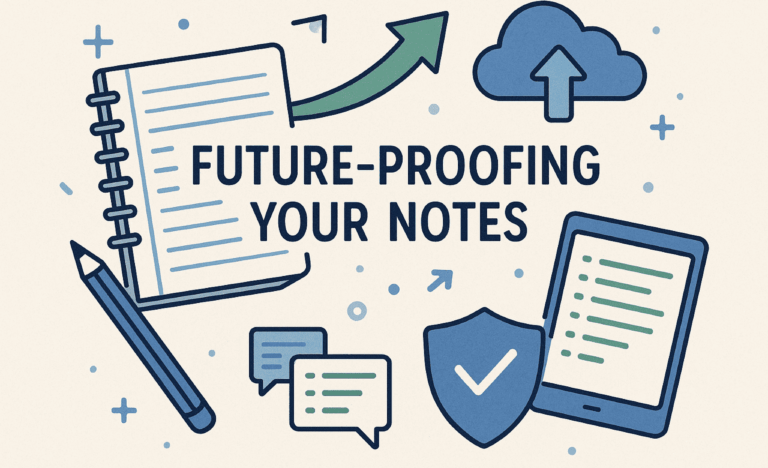21 Small Morning Habits to Jumpstart a Productive Day
How you start your morning has a way of echoing throughout your entire day. Maybe you’ve had those mornings where you hit snooze one too many times, rush through a shower, and realize you’re already late before you even finish breakfast. The whole day can feel scrambled from that point on.
A steady morning routine won’t fix everything, but it can give you more control and a sense of stability before work, family, or unexpected events start demanding your attention. Morning habits don’t have to be extreme or time-consuming. Sometimes it’s the simple, repeatable steps that make the biggest difference over time.
Below, you’ll find 21 morning habits that can help you feel more productive and prepared. You don’t need to use all of them. Pick a few that fit your life, try them for a week, and see how your mornings change.
1. Wake Up a Little Earlier Than You Need To
Waking up early is a classic piece of advice, but it doesn’t mean you have to leap out of bed at 5 a.m. If you’re used to scrambling out of bed just in time to get ready for work, even setting your alarm 15 minutes earlier can give your morning a calmer pace.
Those extra minutes might not seem like much, but they let you move at a slower, more thoughtful speed. You can take your time with basic tasks, showering, getting dressed, or even just making the bed without starting the day in a rush. This gentle buffer is a small kindness to yourself, especially if you’re usually caught up in the morning whirlwind.
A few small ways to use your extra time:
- Stretch lightly or just sit quietly for a few minutes
- Prepare a simple breakfast (even if it’s just toast or fruit)
- Open your window or step outside to get a little fresh air
You might be surprised at how these moments set a more relaxed tone for the rest of your day. While some studies suggest “morning people” report higher well-being, you don’t need to become a hardcore early riser overnight. It’s more about finding a wake-up time that gives you some space, not stress.
And if you’re curious about your own rhythms, Daniel Pink’s book “The Scientific Secrets of Perfect Timing,” which explores how timing affects performance and mood worth a look if you want to go deeper.
2. Make Your Bed (Yes, Really)
It’s simple, but making your bed is a habit that shows up in countless routines for a reason. As Admiral William McRaven once said in a now-famous commencement speech, making your bed gives you a small but meaningful win before the day even starts.
The act itself is quick, a minute or two at most. But it sends a message: you’ve already completed something. That sense of accomplishment, however minor, can spill into your next task. Psychologists call this a “keystone habit,” a small routine that has a ripple effect on your overall mindset and discipline.
Why this small act matters:
- It creates a sense of order in your personal space
- A tidy bed may reduce stress, even if the rest of your room is messy
- It’s a physical signal to your brain that sleep time is over and the day is beginning
Research published in the journal Sleep Health found that people who make their beds regularly are more likely to report better sleep quality. It’s a simple way to start (and end) the day with a little more intention. You don’t have to go for military precision. Straighten the pillows, pull up the covers, and make it look a little more inviting for when you return at night. The physical order often translates to a bit more mental order, too.
3. Drink a Glass of Water First Thing
You might not feel it right away, but after seven or eight hours of sleep, your body wakes up a little dehydrated. That groggy feeling in the morning isn’t always just a sign that you need more sleep; it can also be a subtle signal that your system needs a bit of hydration.
Drinking a full glass of water first thing helps kickstart your digestion, supports blood circulation, and makes your brain active. It’s a simple routine with real benefits: Researchers have found even mild dehydration can affect your mood, memory, and energy levels throughout the day.
Tips to make this habit stick:
- Keep a water bottle or glass on your nightstand, ready for the morning
- If plain water feels boring, add a slice of lemon or cucumber for a little flavor
- Pair this habit with another one, like opening your curtains or making your bed
You don’t need to chug a whole liter just enough to gently rehydrate your body and signal that the day is starting. Over time, this can help you feel a little more awake before you even reach for coffee.
4. Let in Natural Light
Sunlight plays a surprisingly big role in how alert you feel and how easily you wake up. Exposure to natural light first thing in the morning helps regulate your body’s internal clock, or circadian rhythm, which tells you when to feel sleepy and when to wake up.
Open your curtains, sit by a bright window, or—if you can—step outside for a few minutes. Even on a cloudy day, the brightness outdoors is many times stronger than indoor lighting. Dr. Andrew Huberman, a neuroscientist at Stanford, recommends at least 10 minutes of outdoor light in the morning to help boost mood and set your body’s natural rhythm for better sleep at night.
A few simple ways to get more morning light:
- Take your coffee or tea near a window
- Walk outside for a quick breath of fresh air, even if it’s just to the mailbox
- Open blinds or curtains as soon as you wake up
Natural light is one of those small, free changes that can make a surprising difference in your energy without adding anything new to your to-do list.
5. Move Your Body (Just a Little)
You don’t need a full workout routine to feel the benefits of movement in the morning. Even a short burst of activity, a few stretches, a brisk walk around the block, or a couple of minutes of simple exercises can help loosen stiff muscles and increase blood flow.
Physical activity releases endorphins, which support a better mood and mental clarity. One study even suggests that light morning exercise can boost focus for hours afterward. It doesn’t have to be intense: the key is to get your body out of “sleep mode” and into motion.
Try one of these easy options:
- Five to ten gentle stretches, like reaching for your toes or rolling your shoulders
- A short walk outside or around your home
- A quick round of jumping jacks, squats, or push-ups, whatever feels right
The goal isn’t to break a sweat, but to wake up your muscles and mind. Once you’re moving, you might find it’s a little easier to tackle the next thing on your list.
6. Take a Few Deep Breaths
A few deep, slow breaths can help transition your body from sleep to wakefulness. When you wake up, your breathing is often shallow. By pausing to fill your lungs and exhale slowly, you supply more oxygen to your body and help lower stress.
Breathwork is a simple technique used in many cultures to steady the mind and body. Even just one minute of focused breathing can calm your nerves, reduce tension, and set a grounded tone for the day ahead. It’s also a good moment to notice how you’re feeling—physically and mentally—before the rush begins.
How to practice morning deep breathing:
- Sit up in bed or stand by a window
- Inhale through your nose for a count of four, letting your belly expand
- Hold your breath gently for a moment, then exhale slowly through your mouth
You can repeat this cycle three to five times, or as long as it feels good. This tiny pause may help you approach the morning with a bit more clarity, no matter what comes next.
7. Eat Breakfast Before You Leave
Breakfast isn’t everyone’s favorite meal, but eating something in the morning can make a real difference in your energy. After a long stretch without food, your body needs fuel to power your brain and muscles.
A breakfast doesn’t have to be fully prepared or fancy. Even something simple like yogurt with fruit, a piece of whole-grain toast with nut butter, or eggs with a handful of veggies can help stabilize your blood sugar and keep mid-morning hunger at bay. Dietitians often recommend combining a little protein, some healthy fat, and complex carbs.
A few quick breakfast ideas:
- Oatmeal topped with berries and seeds
- Greek yogurt with banana and a sprinkle of granola
- A smoothie with spinach, frozen fruit, and nut butter
What matters is setting yourself up with steady energy, rather than running on an empty stomach or grabbing whatever’s convenient once you’re starving. If you’re not usually hungry first thing, try a lighter option or bring a snack to eat a bit later.
8. Plan Your Top Priorities
Mornings are often the best time to figure out what actually needs to get things done. Instead of jumping straight into emails or letting other people’s requests take over, spend a minute or two jotting down your top priorities.
Focus on two or three things that would make your day feel productive if you finished them. This helps you avoid an overwhelming to-do list and gives you a clear starting point when distractions show up.
Productivity expert David Allen, author of Getting Things Done, suggests writing tasks down to keep them from swirling around in your head.
To keep your list manageable:
- Limit yourself to 2–3 main tasks
- Be specific: “Call the dentist” instead of “catch up on errands.”
- Review your list before you start any task or work
Having your top priorities set early can make the rest of your day feel less scattered, even when unexpected things pop up.
9. Avoid Checking Your Phone Right Away
It’s easy to reach for your phone before you even get out of bed, but starting your day with news, scrolling your social media feeds, or email can pull your attention in too many directions before you’re ready. Notifications are designed to grab you—and sometimes, that means you’re reacting to other people’s needs instead of your own plans.
Giving yourself even 15 or 30 minutes of “phone-free” time each morning helps you set your own tone for the day. This can mean leaving your phone in another room, turning on “do not disturb,” or simply resisting the urge to scroll until after your first cup of coffee.
A few simple phone boundaries:
- Use a traditional alarm clock so your phone isn’t the first thing you touch
- Place your phone across the room or in a drawer while you get ready
- Remind yourself there’s nothing urgent that can’t wait a few minutes
Taking this short break from screens can help your mind wake up gently, with less stress or distraction.
10. Take a Quick Walk (Even If It’s Just Around the Block)
Getting outside for a short walk in the morning is a low-pressure way to wake up your body and mind. Walking helps improve blood circulation, gives you a dose of fresh air, and—if you’re lucky—some natural light. Even a five-minute stroll can help loosen up stiff joints and spark a few creative ideas or an aha moment.
You don’t have to walk far or fast. Some people use this time to listen to a favorite song or simply enjoy the quiet before the day gets busy. If walking outside isn’t practical, moving around your home or stretching by an open window can give similar benefits.
If you want to make it a habit:
- Lay out your shoes or a jacket the night before
- Tie your walk to something you already do, like after breakfast
- Invite a family member or pet to join you for a little extra motivation
This small burst of movement doesn’t require a gym, a schedule, or special gear, just a few minutes to yourself as the day gets started.
11. Get Dressed—Even If You’re Staying In
Changing out of sleepwear signals to your brain that it’s time to start the day, even if you work from home or don’t have plans to leave the house. It’s a subtle but effective way to switch from “rest mode” to “ready for action.”
Getting dressed doesn’t have to mean putting on a suit or anything fancy. Clean, comfortable clothes are enough to make you feel a little more refreshed and prepared. Some people find that even changing into a fresh T-shirt can make a difference in their motivation and confidence.
Simple ways to upgrade your morning:
- Lay out your clothes the night before
- Choose something that fits your mood or tasks for the day
- If you like, add a quick personal touch like jewelry, a watch, or your favorite shoes
Even on days with no outside commitments, getting dressed helps create a clear line between sleep and the rest of your routine.
12. Do a Quick Tidy-Up
Spending just a couple of minutes clearing clutter or wiping down surfaces in the morning can help you feel more settled as the day begins. A tidy space doesn’t have to be spotless it just needs to feel a little more organized.
You might:
- Make sure dishes are out of the sink
- Clear off your workspace or kitchen table
- Put away laundry or toss out old receipts
Small cleaning routines can reduce visual stress and keep chores from piling up. Studies have shown that cluttered environments can make it harder to focus and relax, so these quick tidying sessions can have a real effect on your mood and productivity.
13. Write Down a Few Thoughts
Taking a minute to jot down whatever’s on your mind can help you start the day with a clearer head. Some people keep a journal, while others just use a scrap of paper or a note on their phone. You don’t need to write an essay; just a few sentences about what you’re feeling, something you’re looking forward to, or even a worry that’s lingering.
This little “brain dump” helps clear mental clutter and make space for new ideas. Julia Cameron’s “Morning Pages” method—writing three pages of stream-of-consciousness thoughts every morning—has inspired many people to develop a regular writing habit, but you can keep it as short and simple as you like.
A few prompts to get started:
- What’s one thing I want to remember today?
- Is there something I’m excited or anxious about?
- What’s one thing I’m grateful for right now?
You might be surprised at how much lighter and more focused you feel after putting a few words on paper.
14. Open a Window for Fresh Air
Letting some fresh air into your home first thing can help wake you up in a gentle, natural way. Even just a few minutes of airflow can make a stuffy room feel lighter and boost your sense of alertness.
Breathing in outdoor air helps remove that “closed-in” feeling from sleeping all night with windows shut. If you live in a quiet neighborhood, you might notice morning sounds, birds, a breeze, or distant traffic, which can help mark the start of a new day.
Easy ways to get fresh air:
- Crack open a window while you get ready
- Stand by the door for a few deep breaths before stepping outside
- If it’s safe, leave a window open a bit as you make breakfast
It’s a small gesture, but it can make your space and your mind feel more awake.
15. Do a Gentle Face Splash or Skincare Routine
Splashing your face with cool water, or following a simple skincare routine, can be a refreshing reset as you transition out of sleep. The sensation of cool water wakes up your skin and can help reduce any leftover grogginess.
Taking a few minutes for basic self-care like washing your face, moisturizing, or applying sunscreen can also make you feel more prepared to start the day, even if you’re not leaving the house.
Simple face-care options:
- Splash your face with cool water to feel instantly refreshed
- Use a gentle cleanser and moisturizer for comfort
- Don’t skip sunscreen if you’ll be near windows or outdoors
This small ritual isn’t just about physically looking good, but it’s about starting the day with a sense of care and readiness.
16. Listen to Music or a Podcast You Enjoy
Sound can be a powerful cue for your mood and energy. Starting your morning with music you love or a favorite podcast can make routines—like getting dressed or making breakfast—feel more enjoyable and less like chores.
You might choose something upbeat to lift your mood or something calming to set a peaceful tone. Some people listen to a short news update, an inspiring podcast, or even nature sounds. The important thing is that it’s something you genuinely look forward to, not just background noise.
A few ways to use audio in your mornings:
- Make a playlist of songs that help you wake up happy
- Find a podcast that matches your interests or curiosity
- Try instrumental music or white noise if you want something gentle
This small ritual can become a bright spot in your routine, and it’s easy to fit in, even on busy mornings.
17. Do a Two-Minute Stretch
A short stretching routine in the morning can help wake up your muscles and joints, especially if you tend to feel stiff after sleeping. Unlike the light movement in Habit 5, this is about gentle, intentional stretching, giving a little extra attention to areas that feel tight.
You might reach for the ceiling, roll your shoulders, stretch your neck side to side, or twist gently at the waist. Taking a moment for slow, deep stretches increases flexibility and gets your blood moving before you jump into the day.
Try this simple sequence:
- Reach your arms overhead and take a deep breath in
- Slowly bend forward and touch your toes (or as far as you can)
- Roll your shoulders backward, then forward a few times
- Gently turn your head side to side
Regular stretching not only feels good but can improve your posture and comfort throughout the day.
18. Set a Simple Boundary for Your Day
Creating a boundary can help you protect your energy and time, especially as demands start to pile up. This might mean deciding in advance not to schedule meetings before a certain hour, turning off notifications for the first hour of the morning, or setting a rule for no work talk at the breakfast table.
Boundaries help you create space for what matters most, reducing the chance you’ll feel overwhelmed before the day has even started. Even one small rule—like “no checking email until after breakfast”—can make your morning feel more peaceful.
Ideas for simple boundaries:
- Don’t say yes to new requests before 10 a.m.
- No news or social media until you’re out the door
- Give yourself a quiet five minutes before interacting with anyone
Boundaries don’t need to be strict or complicated; they’re just little promises to yourself to start the day your way.
19. Prepare a “Launch Pad” for Tomorrow
Taking a minute to set out what you’ll need for the next day can make tomorrow’s morning routine smoother. This is about creating a physical “launch pad,” a small space where you place essentials like your bag, keys, water bottle, or anything else you’ll need to grab on your way out.
You can also lay out your clothes, prep your lunch, or jot down any reminders for the morning. These small acts help prevent last-minute stress and make your future self’s day a little bit easier.
What to set out on your launch pad:
- Your keys, wallet, and phone (charged!)
- Anything you usually forget or search for
- A note to yourself if there’s a special task or event
Building this into your routine means you can start the next day with less rush and more calm.
20. Enjoy a Moment of Stillness
Among all the things you can do, sometimes it’s valuable to do nothing at all—even for just a minute. Taking a quiet moment to sit, stand by a window, or simply notice your breath without trying to change anything gives your mind a rare pause.
This isn’t meditation (unless you want it to be), but it’s just a small space for your thoughts before the day speeds up. Many people find that even a brief pause helps with patience, focus, and stress levels as the day goes on.
How to practice:
- Sit or stand comfortably with your eyes open or closed
- Notice any sounds, sensations, or your own breathing
- Let your thoughts drift without judging or solving anything
It’s a gentle way to start the day feeling a bit more centered and aware.
21. Celebrate a Tiny Win
Starting your morning by recognizing something you’ve accomplished—even something small—can set a positive tone for the rest of the day. Maybe you got out of bed on the first alarm, made your bed, or drank that glass of water. Each “tiny win” is worth a small nod of acknowledgment.
Author James Clear, in his book Atomic Habits, emphasizes that celebrating small wins is key to building better habits. Each time you reward yourself for taking positive action, you reinforce the behavior and make it easier to repeat. These little moments of success can build motivation and help you stick to bigger goals over time.
Ways to celebrate your win:
- Say “nice job” to yourself, out loud or in your head
- Mark it on a checklist or journal
- Share your win with a partner, roommate, or friend
By ending your morning routine with a celebration, you remind yourself that even little steps count.
Which One Should You Try?
You don’t need to overhaul your entire morning or follow every step on this list. The real benefit comes from picking one or two habits that fit your life and seeing how they work for you. Everyone’s routine is unique, so it’s about finding what makes your morning feel smoother and your day a little brighter.
Choose one or two small habits to start with. You might be surprised at the difference they make for your productivity, both in the morning and throughout the day.






